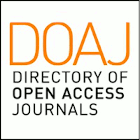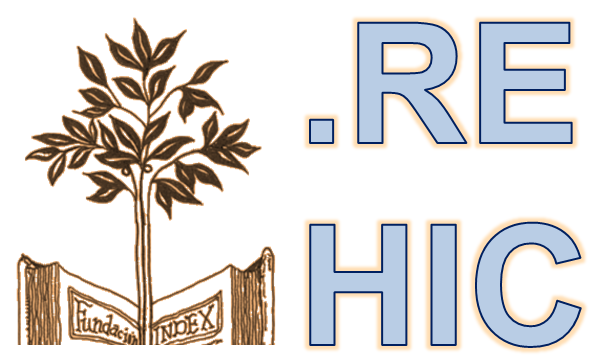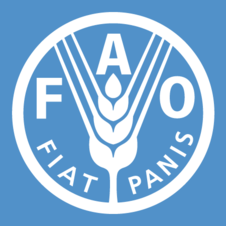Motives to reduce meat consumption in Mexican university students
DOI:
https://doi.org/10.29105/respyn21.3-2Keywords:
Meat consumption, Vegetarians, Sustainable dietAbstract
Introducción: La producción y consumo de carne son la principal fuente de impactos ambientales derivados de la alimentación. Las dietas bajas en proteína animal y vegetarianas se han propuesto como una posible alternativa para ayudar en la solución de esta problemática. Objetivo: Identificar los motivos asociados con la disminución del consumo de carne. Método: Se aplicó un cuestionario construido ex profeso a 60 estudiantes universitarios: 47 mujeres y 13 hombres con edades entre 18 y 27 años, que reportaron ser semi vegetarianos, vegetarianos o veganos. Resultados: Los resultados indican que los principales motivos para limitar el consumo de carne incluyen la ética, el bienestar animal, la preocupación por el medio ambiente, la salud y la nutrición. Conclusión: Se identificaron las principales razones que llevan a los estudiantes a disminuir su consumo de carne. Comprender los motivos para reducir el consumo de proteína animal podría ayudar a diseñar estrategias que contribuyan a la transición hacia dietas con menor consumo de carne y alcanzar la sustentabilidad alimentaria.
Downloads
References
Asner, G. P., Elmore, A. J., Olander, L. P., Martin, R. E., & Harris, T. (2004). Grazing Systems, Ecosystem Responses, and Global Change. Annual Review of Environment & Resources, 29(1), 261–264. https://doi.org/10.1146/annurev.energy.29.062403.102142 DOI: https://doi.org/10.1146/annurev.energy.29.062403.102142
Baines, S., Powers, J., & Brown, W. J. (2007). How does the health and well-being of young Australian vegetarian and semi-vegetarian women compare with. Public Health Nutrition, 10(5), 436–442. https://doi.org/10.1017/S1368980007217938 DOI: https://doi.org/10.1017/S1368980007217938
Berkow, S. E., & Barnard, N. (2006). Vegetarian Diets and Weight Status. Nutrition Reviews, April, 175–188. https://doi.org/10.1301/nr.2006.apr.175 DOI: https://doi.org/10.1111/j.1753-4887.2006.tb00200.x
Bryant, C. J. (2019). We Can ’ t Keep Meating Like This : Attitudes towards Vegetarian and Vegan Diets in the United Kingdom. Sustainability, 11(6844). https://doi.org/doi:10.3390/su11236844 DOI: https://doi.org/10.3390/su11236844
de Boer, J., Schösler, H., & Aiking, H. (2017). Towards a reduced meat diet: Mindset and motivation of young vegetarians, low, medium and high meat-eaters. Appetite, 113, 387–397. https://doi.org/10.1016/j.appet.2017.03.007 DOI: https://doi.org/10.1016/j.appet.2017.03.007
Derbyshire, E. J. (2017). Flexitarian Diets and Health : A Review of the evidence-Based Literature. Frontiers in Nutrition, 3(January), 1–8. https://doi.org/10.3389/fnut.2016.00055 DOI: https://doi.org/10.3389/fnut.2016.00055
Forestell, C. A. (2018). Flexitarian Diet and Weight Control : Healthy or Risky Eating Behavior ? Frontiers in Nutrition, 5(July), 1–6. https://doi.org/10.3389/fnut.2018.00059 DOI: https://doi.org/10.3389/fnut.2018.00059
Fox, N., & Ward, K. (2008a). Health , ethics and environment : A qualitative study of vegetarian motivations. Appetite, 50, 422–429. https://doi.org/10.1016/j.appet.2007.09.007 DOI: https://doi.org/10.1016/j.appet.2007.09.007
Fox, N., & Ward, K. J. (2008b). You are what you eat ? Vegetarianism, health and identity. Social Science & Medicine, 66, 2585–2595. https://doi.org/10.1016/j.socscimed.2008.02.011 DOI: https://doi.org/10.1016/j.socscimed.2008.02.011
Jabs, J. (1998). Model of the Process of Adopting Vegetarian Diets : Health Vegetarians and Ethical Vegetarians. Journal of Nutrition Education, 30(4), 196–202. DOI: https://doi.org/10.1016/S0022-3182(98)70319-X
Jallinoja, P., Niva, M., & Latvala, T. (2016). Future of sustainable eating ? Examining the potential for expanding bean eating in a meat-eating culture. Futures, 83, 4–14. https://doi.org/10.1016/j.futures.2016.03.006 DOI: https://doi.org/10.1016/j.futures.2016.03.006
Kateman, B. (2016). Beyond ‘ Vegetarian .’ The Tlantic. https://www.theatlantic.com/health/archive/2016/03/beyond-vegetarian/473613/
Kenyon, P., & Barker, M. (1998). Attitudes Towards Meat-eating in Vegetarian and Non- vegetarian Teenage Girls in England — an Ethnographic Approach. Appetite, 30, 185–198. DOI: https://doi.org/10.1006/appe.1997.0129
Leahy, E., Lyons, S., & Tol, R. S. J. (2010). An Estimate of the Number of Vegetarians in the World (Issue 340).
Nielsen. (2016). ¿Qué hay en nuestra comida y en nuestra mente? https://www.nielsen.com/mx/es/insights/report/2016/Que-hay-en-nuestra-comida-y-en-nuestra-mente/#
Orozco, C. (2019). ¿Por qué México le está diciendo adiós a la carne? •. Pabellon Veganautas. https://www.gourmetshow.mx/wp-content/uploads/2020/07/Bol-3-Las-protenas-en-el-veganismo.pdf
Pfeiler, T. M., & Egloff, B. (2018). Examining the “Veggie” personality: Results from a representative German sample. Appetite, 120, 246–255. https://doi.org/10.1016/j.appet.2017.09.005 DOI: https://doi.org/10.1016/j.appet.2017.09.005
Reinhart, R. (2018). Snapshot : Few americans vegetarian or vegan. https://news.gallup.com/poll/238328/snapshot-few-americans-vegetarian-vegan.aspx
Ruby, M. B. (2012). Vegetarianism. A blossoming field of study. Appetite, 58, 141–150. https://doi.org/10.1016/j.appet.2011.09.019 DOI: https://doi.org/10.1016/j.appet.2011.09.019
Sabaté, J., & Wien, M. (2010). Vegetarian diets and childhood obesity prevention 1 – 4. The American Journal of Clinical Nutrition, 91, 1525–1529. https://doi.org/10.3945/ajcn.2010.28701F.Am DOI: https://doi.org/10.3945/ajcn.2010.28701F
Steinfeld, H., Gerber, P., Wassenaar, T. D., Castel, V., & Haan, C. (2006). Livestock´s long shadow: environmental issues and options. http://www.fao.org/docrep/010/a0701e/a0701e00.HTM
Tilman, D., & Clark, M. (2014). Global diets link environmental sustainability and human health. Nature, 515, 518–522. https://doi.org/doi:10.1038/nature13959 DOI: https://doi.org/10.1038/nature13959
Trocchia, P. J., & Janda, S. (2008). A Cluster Analytic Approach for Consumer Segmentation Using the Vegetarian / Meatarian Distinction. Journal of Food Products Marketing, 9(2), 11–23. https://doi.org/10.1300/J038v09n02 DOI: https://doi.org/10.1300/J038v09n02_02
Wellesley, L., Happer, C., & Froggatt, A. (2015). Changing climate, changing diets pathways to lower meat consumption. In Chatham House Report. http://www.itv.com/news/2015-11-24/taxing-the-sale-of-meat-would-be-less-unpopular-than-many-governments-believe-report-says/
Willett, W., Rockström, J., Loken, B., Springmann, M., Lang, T., Vermeulen, S., Garnett, T., Tilman, D., DeClerck, F., Wood, A., Jonell, M., Clark, M., Gordon, L. J., Fanzo, J., Hawkes, C., Zurayk, R., Rivera, J. A., De Vries, W., Majele Sibanda, L., … Murray, C. J. L. (2019). Food in the Anthropocene: the EAT–Lancet Commission on healthy diets from sustainable food systems. The Lancet, 393(10170), 447–492. https://doi.org/10.1016/S0140-6736(18)31788-4 DOI: https://doi.org/10.1016/S0140-6736(18)31788-4
Downloads
Published
How to Cite
Issue
Section
License
Copyright (c) 2022 Patricia Manzano Fischer, Cecilia Guadalupe Silva Gutiérrez

This work is licensed under a Creative Commons Attribution 4.0 International License.
The rights of the work belong to the author or authors, however, by sending it for publication in the Public Health and Nutrition Magazine of the Faculty of Public Health and Nutrition of the Autonomous University of Nuevo León, they grant the right for its first publication in between electronic, and possibly, in print to the Public Health and Nutrition Magazine. The license used is the Creative Commons attribution, which allows third parties to use what is published whenever the authorship of the work is mentioned and the first publication that is in the Public Health and Nutrition Magazine. Likewise, the author or authors will take into account that it will not be allowed to send the publication to any other journal, regardless of the format. The authors will be able to make other independent and additional contractual agreements for the non-exclusive distribution of the version of the article published in the Public Health and Nutrition Magazine (e.g., institutional repository or publication in a book) provided they clearly state that The work was published for the first time in the Public Health Magazine, Magazine of the Faculty of Public Health and Nutrition of the Autonomous University of Nuevo León.














